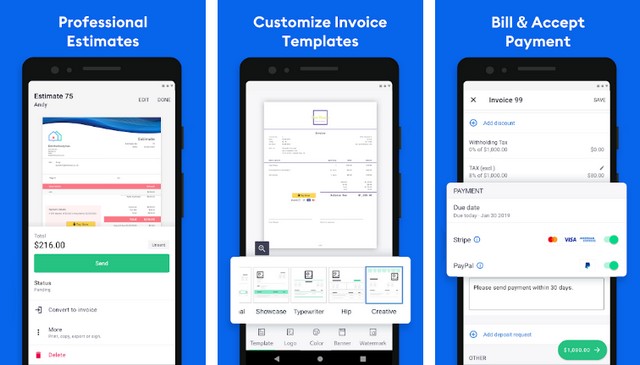
#Invoicing apps for magento software
QuickBooks is an accounting software package that offers financial solutions to small to medium-sized businesses and is used by businesses all over the world. Integrating Magento with other third-party applications like QuickBooks can also enhance the productivity of an online store. It is because of these benefits and this degree of customizability that Magento has become one of the largest eCommerce platforms today. Secure order preferences and product management.In addition, there are numerous benefits of using Magento as your eCommerce platform, some of which are listed below. There is a variety of extensions, plugins, and themes available to enhance the overall customer experience as there are a lot of aspects that have to be configured according to the requirements of a specific business to provide the perfect customer experience. Furthermore, it also provides powerful marketing, catalog management, and search engine optimization tools to enhance the productivity of the online store. It also offers control over the content, theme and overall functionality of the online store. It is an open-source eCommerce platform that provides retailers or merchants with a highly customizable shopping cart system. Before we begin to explore how Magento and QuickBooks together can transform your business, we must understand what they are and their importance for running a business. This is where Magento and QuickBooks enter the game. The very first step towards making an online presence is having your very own website for your specific business and with that website, an online shopping or eCommerce platform is also important in order to maximize customer engagement as the number of consumers purchasing products online has drastically increased over the past few years especially with the growing popularity of smartphones and other handheld devices. If you plan using it on some live site, please test it thoroughly before and adjust it to your specific needs.In this age of digitalization, it has become necessary for every kind of business to maintain an online presence in order to stay in the competition among other rivals.
#Invoicing apps for magento code
The above code was tested on Magento 1.6.2.0. This IF condition is a good place if you wish ti limit this code to orders created by specific Payment gateway, for example Check/Money which has the “checkmo” code, in which case all you need to do is call if ($order->getPayment()->getMethod = ‘checkmo’), etc. Next in line is the simple check for order state, IF “new” (which means created right now) then do the entire process of invoicing and shipment. If there are none, then I proceed with creating both invoice and shipment. As you can see, the first thing I’m doing above is looking into the sales/order_invoice collection to check if there are any existing invoices created for the particular order. Meaning this code should be written with more detailed checks if it where to go on live site.

*/ public function automaticallyInvoiceShipCompleteOrder ( $observer ) īefore I go any further, I must emphasize that there is a certain known buggy code within automaticallyInvoiceShipCompleteOrder method :). * protected $_eventPrefix = 'sales_order' * Mage::dispatchEvent($this->_eventPrefix.'_save_after', $this->_getEventData()) Here is the content of config.xml of our module: 1.0.0.0 Inchoo_Invoicer_Model inchoo_invoicer/observer automaticallyInvoiceShipCompleteOrder Īnd here is the code for our observer model. If we where to code everything in form of a module/extension, then all we need are two files. In this example I decided to demonstrate the possible (not ideal, or not even the best) “ sales_order_save_after event” approach. So how do we do that?Įasy! All you need to do is to observe the sales_order_save_after event or observe the controller_action_predispatch event and target the Mage_Checkout_OnepageController::successAction() catching the Mage::getSingleton(‘checkout/session’)->getLastOrderId(). Thus, having your Magento automatically invoice/ship/complete orders can be a logical request. In such scenario overload of manually creating an invoice and shipment can be too much.


For example, you are doing the checkout for bunch of people standing in front of you, paying you money right on the spot. Imagine you have a private on site sale or something like that, where your checkout requirements are pretty simply: create invoice / ship and complete the order all at once.


 0 kommentar(er)
0 kommentar(er)
